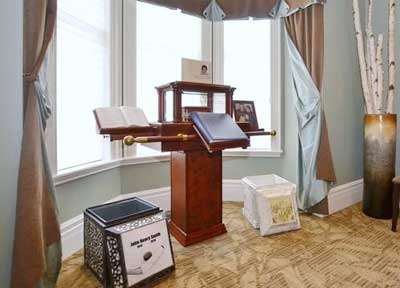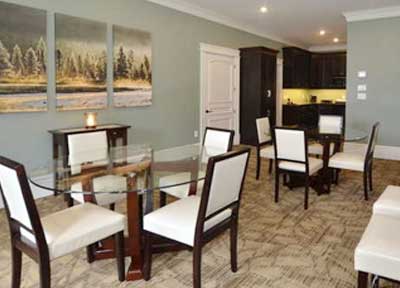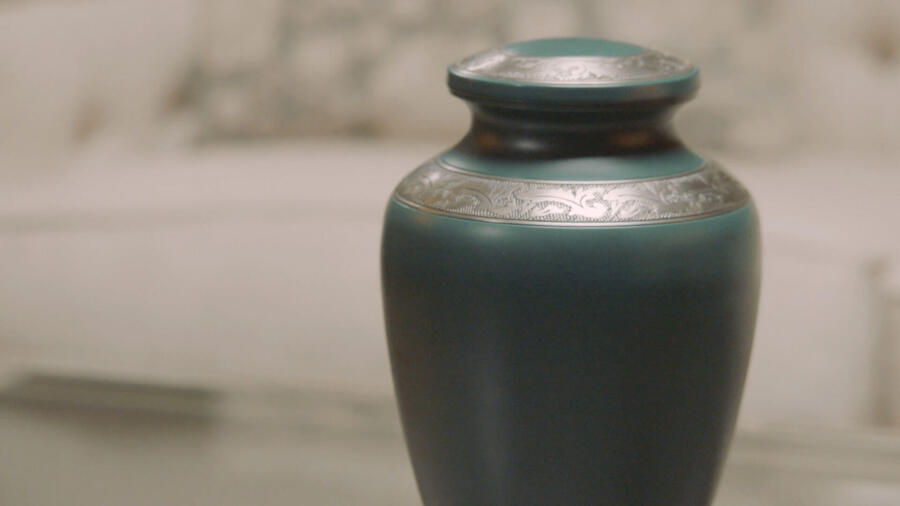
Have the Talk of a Lifetime™
Have the Talk of a Lifetime™ is a global campaign encouraging families to have conversations about life and what matters most. Through the telling of their life story, individuals are helped to make important decisions about how they wish to be remembered and can help families honour the life of their loved one, when the time comes. Having these conversations prior to a death generally removes the anxiety associated with such an emotionally laden topic as death.

Through meaningful memorialization — that is, taking time to reflect on the unique life of a loved one and remembering the difference they are making (and have made) — families and friends take an important step in the journey toward healing after death. Today, individuals and their families have more options for memorializing their loved one at the end of life.
Memorialization is so much more than it used to be. It can reflect a person’s life story, their values, interests, and experiences. It is transformative, healing, and comforting. Meaningful memorialization planning starts when loved ones talk about what matters most: memories made, lessons learned, and how they hope to be remembered.
Having the talk of a lifetime can make the difference of a lifetime. It can help reacquaint us with our loved ones and help us get to know them in a new and different way.
“My father-in-law has COPD and we’ve been looking for the right time to have the talk with him. He’s very private and often jokes around to cover up how he’s really feeling. Our young daughter came up with some questions that she wanted to ask her grandpa that would help her get to know him better. So she proceeded to ask him, “What are your proudest of in your life, who’s been your greatest role model, if you went back to school what would you become.” The questions and answers led to some incredible, tear jerking conversation and we saw this man in a whole new different way.”
Starting the Conversation
This conversation might seem tough to have, but it doesn’t need to be. What’s most important is that you have the conversation, not how you have it.
There are many different ways to begin the conversation. You know your family and how your loved ones might best respond to the topic. For some families, it might be a casual conversation over dinner or at another type of family gathering. For other families, a formal meeting might be better suited.
Regardless of your approach, the conversation is much easier to have when death is not imminent.
Here are some tips that may help:
- Set a time to have the conversation. Schedule it as an appointment with your loved ones, whether you want to share your plans with them or ask them to make their plans to share with you.
- Ease into the conversation. Questions such as “Have you ever thought about where you would like to be buried?” or “What type of funeral would you like to have?” may open the discussion to more details about your loved one’s wishes.
- Take advantage of funeral-related opportunities. Attending the funeral of a friend, family member or colleague or watching a movie or television show with funeral scenes may naturally prompt the discussion with your own loved ones. Talk about what you liked or didn’t like about the services you saw or attended.
- Tell your children or loved ones that because you care for them so much, you don’t want to burden them with difficult decisions when you’re gone. Tell them you’ve made your own final arrangements, and give them a written record of what they are.
Continuing the Conversation
Wrap a copy of your pre-arrangement in a gift box, and present it to your family. Invite your adult children along to participate in the selection of services, funeral merchandise and cemetery property. Sharing stories with those who matter most isn’t just important today; it will be especially significant when it’s time to commemorate a life.
Questions like the following help loved ones know you better and allow for greater personalization of funeral ceremonies.
- What are you most thankful for?
- What is your proudest achievement?
- What was the best piece of advice given to you?
- What makes you laugh or smile?
- Name 3 – 5 words that describe you the best.









